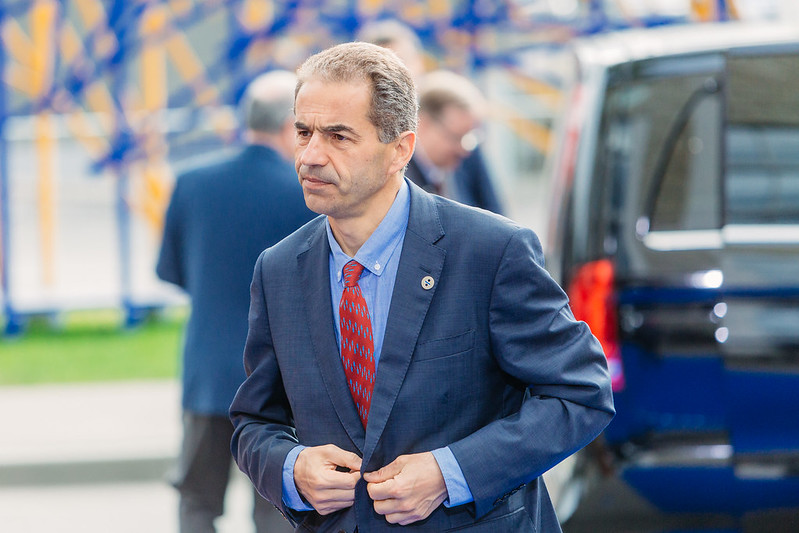This itinerancy is not over yet: he still holds an engineering professorship at the University of Lisbon and intends to return to academia after his latest stint in power.
Heitor hopes to use his country’s Januaryto-June presidency of the Council of the EU to convince the bloc to facilitate such movement to bolster researchers’ careers.
Researcher mobility could be increased by simplifying the “difficult and complex” recruitment process for cross-border academic posts shared between institutions, he suggests to Research Europe. “We need to facilitate mobility through joint careers, particularly in areas where we can better integrate education, research and innovation.”
Heitor also wants Portugal’s presidency to convince ministers in the Council and the European Commission to boost movement between academia and industry. He suggests it is easier to break down these barriers at a European scale than nationally, and says policymakers “need to approach this from the public and the private” sides.
Creating research jobs could become part of companies’ corporate social responsibility, he says, with businesses asked to report annually on the number of posts they have created. Portugal has already invited chief executives from innovative companies to speak about working conditions for industry researchers at an informal Council meeting in early February.
How well Heitor’s agenda is received by the other EU science ministers may only become clear at a Council meeting at the end of May, where he will have the chance to get them to sign off a joint position on how to improve working conditions for researchers.
Council presidencies have latitude to promote their host government’s political priorities, within a broader framework. Portugal’s main priorities for its presidency include the EU’s recovery from the Covid-19 pandemic, boosting its environmental sustainability and digitisation, and strengthening its autonomy.
The presidency will shepherd the early implementation of the EU’s €1 trillion 2021-27 budget and €750 billion Covid-19 recovery fund. In the academic sphere, it will help to implement the launch of Horizon Europe and Erasmus+, the 2021-27 R&D and academic mobility programmes. Before midsummer, EU ministers must approve some final tweaks to Horizon Europe, including to its plethora of public-private partnerships.
Heitor frames Covid-19 as a collective crisis born of “the imbalance between economic activity and mother nature”. He says that “Europe needs to lead the science of the Anthropocene”, referring to the geological age in which humans have dramatically affected the Earth, such as by causing global warming and triggering waves of disease by encroaching on the territories of everdwindling wildlife populations.
Such leadership must include strong international science with the US and Africa, he says, giving marine microplastic pollution as one issue that Europe “cannot solve alone”. He suggests that Europe is a leader when it comes to the greening of transport but has fallen behind in agriculture.
Aside from its presidency, the Portuguese government wants to double the country’s participation in Horizon Europe. Heitor says Portugal has significantly increased its research spending in recent years, in particular with money oriented towards growing its EU participation. But he admits that achieving its goal will be an “enormous challenge”.
So in its European and national endeavours, Portugal has a lot to do. Heitor will have to get things moving.
